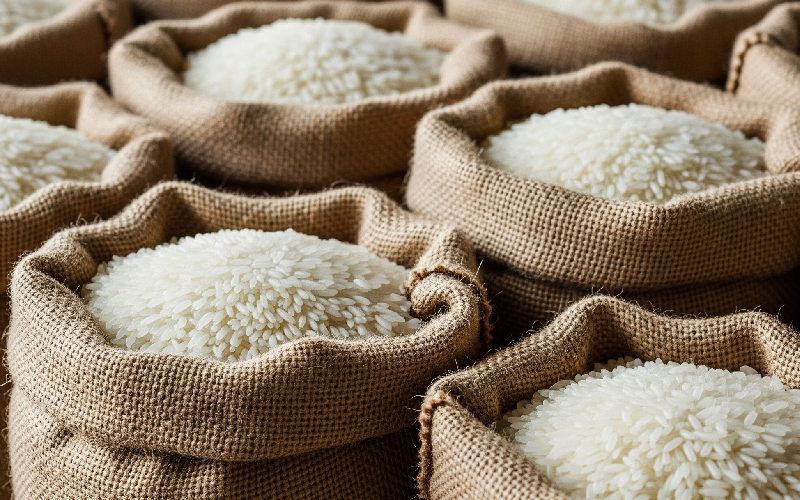
The United Nations World Food Programme has received a donation of 23,268 metric tonnes of rice from the Republic of Korea to support its emergency food response for refugees in Kenya.
The contribution valued at Sh2.34 billion ($18 million) was made through Korea’s Ministry of Agriculture, Food and Rural Affairs.
It will help meet the food needs of 720,000 refugees living in Dadaab and Kakuma camps, as well as Kalobeyei settlement, over the next six months.
“This generous rice contribution from the Republic of Korea is more vital than ever for WFP to continue supporting the food needs of hundreds of thousands of refugees,” said Baimankay Sankoh, WFP’s Deputy Country Director in Kenya.
“Most refugees are unable to work or return home and are entirely dependent on humanitarian assistance to survive. We sincerely hope this expanded rice contribution will continue in the future.”
According to WFP the support comes at a critical time, as WFP faces major funding shortfalls.
In May, the agency warned that refugees in Kenya are at risk of heightened food insecurity after it was forced to cut assistance to the lowest levels ever recorded.
From June, the 720,000 refugees supported by WFP began receiving an in-kind food ration of only 28 per cent of the minimum daily recommended intake, while all cash assistance was suspended due to lack of funds.
“WFP’s operations supporting refugees in Kenya are under immense strain,” Sankoh said. “With available resources stretched to their limits, we have had to make the difficult decision to again reduce food assistance. This will have a serious impact on vulnerable refugees, increasing the risk of hunger and malnutrition.”
The situation is already dire. According to WFP, the Global Acute Malnutrition rate among refugee children and pregnant or breastfeeding women in Kenya is over 13 per cent—well above the emergency threshold of 10 per cent in refugee contexts. WFP’s nutrition programmes for children and mothers were suspended in late 2024 due to funding gaps.
In 2024, WFP, working in partnership with Kenya’s Department of Refugee Services and UNHCR, provided monthly food assistance, mostly a mix of cash and in-kind food to the refugee population. However, repeated budget constraints have forced ration cuts, with the most recent in February reducing support to just 40 per cent of a full food basket based on the daily intake of 2,100 kilocalories.
Over the past five years, the number of refugees and asylum seekers in Kenya has risen sharply, from about 500,000 to 843,000, driven by conflict and instability in neighbouring countries such as Somalia and South Sudan.
Despite support from multiple donors, WFP has had to scale back, reducing rations to just one-third of the recommended levels. The Republic of Korea has played a key role in sustaining WFP operations in Kenya, contributing rice worth $88 million between 2018 and 2025.
“Korean rice is known for its high quality,” said Sankoh. “Its reliable, annual delivery allows WFP to plan effectively and respond flexibly to shifting needs on the ground. This predictable support safeguards the dignity of refugees by ensuring access to sufficient and nutritious food.”
Ambassador of the Republic of Korea to Kenya, H E Kang Hyung-shik, reaffirmed his country’s commitment to humanitarian solidarity.
“The Republic of Korea is proud to stand alongside other nations in responding to the rising hunger crisis and providing hope to thousands of families in the eastern Africa region,” he said. “Our history is deeply rooted in global solidarity, and we remain committed to standing with those in need.”











